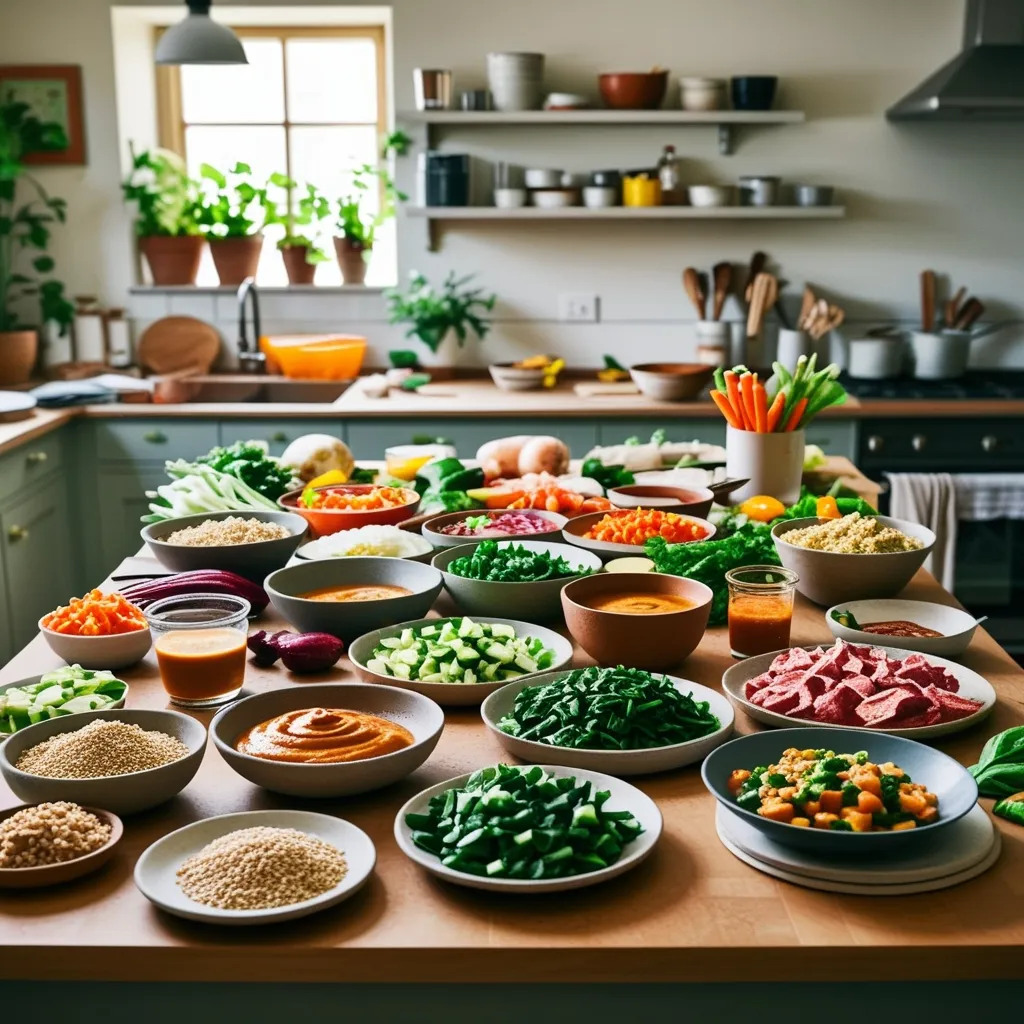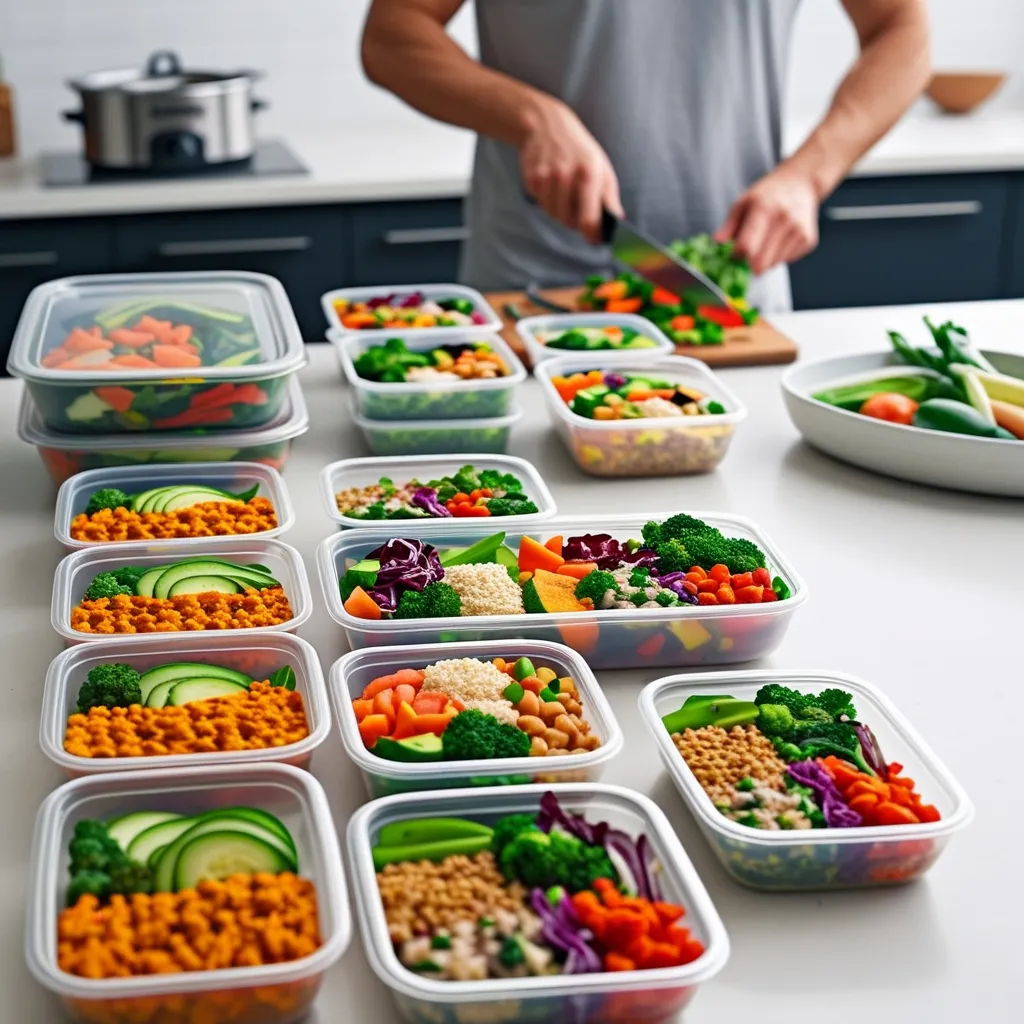In the whirlwind of our lives today, managing time effectively is super crucial, especially when it comes to something as basic and necessary as meal planning. For busy folks and families, a well-organized meal plan can be a total game-changer—saving you time, money, and cutting down on stress. So, here’s a guide on whipping up easy meals that fit perfectly into your hectic schedule.
First off, the magic mantra of meal planning is to keep it simple. Seriously, don’t overthink it. You don’t have to map out every single meal. Just start with dinner and roll the leftovers into lunch for the next day. This way, you’re saving time and reducing food waste. For instance, roasting a whole chicken on Sunday means you’ve got the base for several meals—chicken salads, sandwiches, soups; you name it.
When you’re picking ingredients, go for the versatile ones. They’ll let you prep once and enjoy variations of meals throughout the week. Think grains, chopped veggies, made-ahead sauces, and prepped proteins. This makes meal prep a breeze and keeps the flavors fresh and exciting.
Planning your meals ahead is a biggie. It keeps you organized and helps avoid those last-minute scrambles for missing ingredients. Pick out your favorite meals for the week, mixing in some healthy options too. If you’re a newbie to meal planning, start with familiar dishes like macaroni and cheese or pizza, and then gradually explore new recipes. This approach eases you into the routine.
Next step: shopping smart. Once your meal plan is ready, make a shopping list based on the ingredients you need. This helps avoid multiple grocery runs, saving you precious time. Have a quick inventory check of your pantry, fridge, and freezer before heading out. Stick to your list to stay within budget and avoid impulse buying.
Dedicate just an hour a week for meal prep. Chopping veggies, cooking proteins, or making sauces in advance can be a real timesaver. With these ingredients ready, you can whip up quick, delicious meals all week long. One-pot meals and slow cookers come in super handy here. Think whole wheat summer pesto pasta, easy chicken parm meatballs, or slow cooker peanut stew. They’re easy to throw together, require minimal cleanup, and you can leave them cooking while you handle other tasks.
Don’t underestimate the power of leftovers. They’re a fantastic way to reduce food waste and save time. Plan your meals in a way that last night’s dinner can morph into tomorrow’s lunch. Leftover chicken can turn into a yummy salad or comforting soup.
Keep healthy snacks on hand to avoid reaching for something unhealthy. Having fruits, cheese, or pretzels ready to go ensures you have quick, nutritious options whenever you need a bite.
Flexibility is key. Things don’t always go as planned, and that’s okay. If you miss a meal prep sesh or need to switch things up midweek, don’t sweat it. The goal of meal planning is to make life easier, not add more stress. Take breaks when needed and get back on track when you can.
Sprinkle some excitement into your routine by experimenting with new recipes. Try something new each week, be it a fruit or vegetable you haven’t cooked with before or learning a new cooking skill. This keeps your meals interesting and prevents food fatigue.
Utilize your freezer effectively. It can be a goldmine for meal prep. Keep a stash of frozen veggies, meats, and pre-cooked meals that can be quickly thawed and used. This ensures you’ve always got a meal ready to go, even on your busiest days.
For families, meal planning should be practical and enjoyable. Pick recipes that are easy to execute and that everyone will love. Think cheeseburger stuffed meatloaf, turkey burger sliders, or crock pot BBQ brisket—these are always winners.
And, of course, keep it healthy. While convenience is king, balance it with healthy eating. Incorporate a variety of fruits, vegetables, and lean proteins into your meals. Simple dishes like overnight oats, salads with pre-grilled chicken, or homemade hamburger helper can be healthy alternatives to fast food.
Don’t shy away from technology. Meal planning templates and apps can be lifesavers, helping you keep track of recipes, shopping lists, and schedules, making the whole process smoother.
To wrap it up, meal planning for busy weeks is all about keeping it simple, staying flexible, and being efficient. By choosing versatile ingredients, prepping in advance, and using leftovers creatively, you’ll save time, money, and ensure that you and your family enjoy healthy, delicious meals. The goal is to weave meal planning into your routine in a way that enhances your life, not complicates it. So, suit up, grab your grocery list, and take the first step towards a more organized, stress-free culinary routine!






